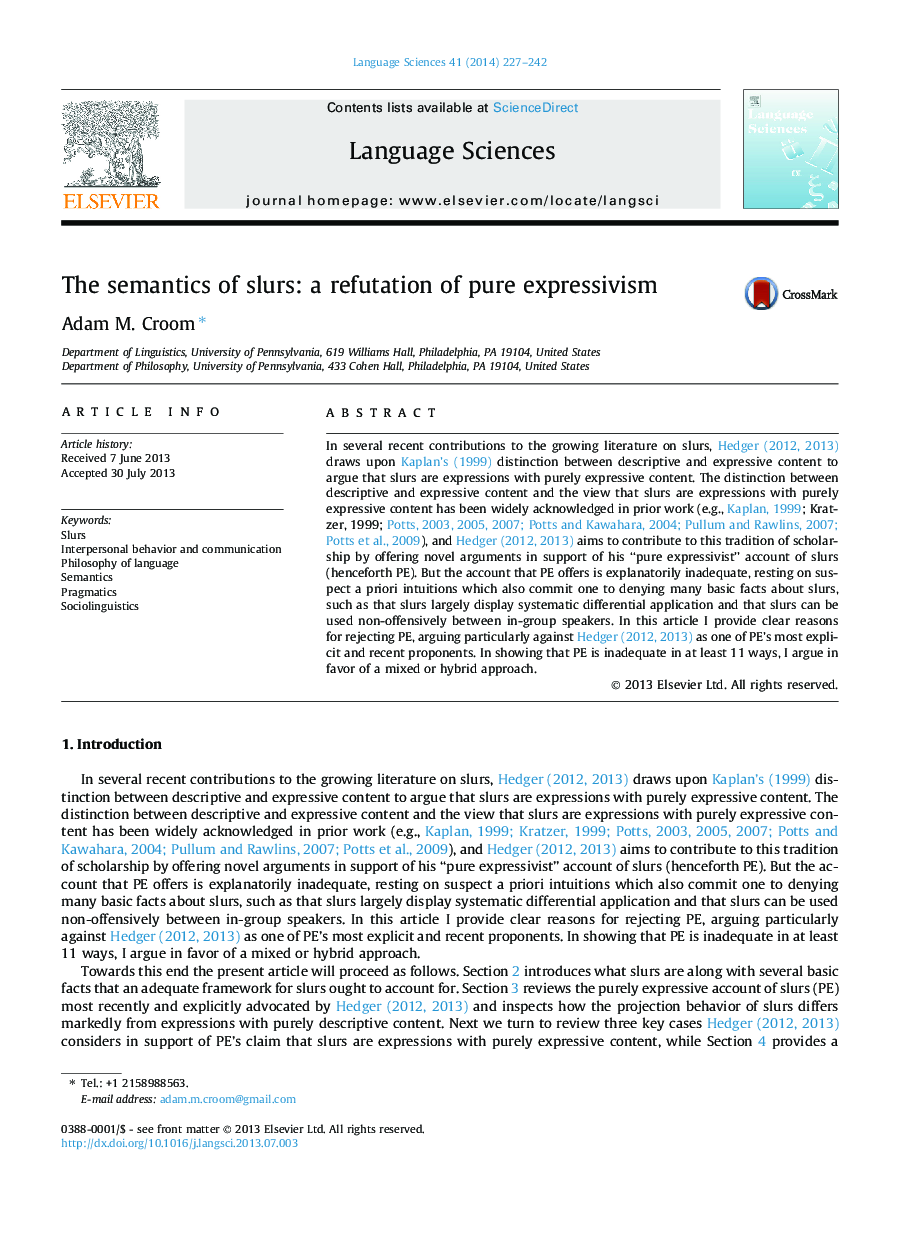| Article ID | Journal | Published Year | Pages | File Type |
|---|---|---|---|---|
| 1103155 | Language Sciences | 2014 | 16 Pages |
•Introduces what slurs are and discusses the basics for an adequate account.•Provides a thorough review of pure expressivism and its account of slurs.•Provides a critical evaluation of pure expressivism and points out 11 ways in which it is inadequate.•Clarifies discussion on slurs by introducing new distinctions and terminology.•Discusses recent empirical considerations on the non-derogatory use of slurs.
In several recent contributions to the growing literature on slurs, Hedger, 2012 and Hedger, 2013 draws upon Kaplan’s (1999) distinction between descriptive and expressive content to argue that slurs are expressions with purely expressive content. The distinction between descriptive and expressive content and the view that slurs are expressions with purely expressive content has been widely acknowledged in prior work (e.g., Kaplan, 1999; Kratzer, 1999; Potts, 2003, Potts, 2005, Potts, 2007, Potts and Kawahara, 2004, Pullum and Rawlins, 2007 and Potts et al., 2009), and Hedger, 2012 and Hedger, 2013 aims to contribute to this tradition of scholarship by offering novel arguments in support of his “pure expressivist” account of slurs (henceforth PE). But the account that PE offers is explanatorily inadequate, resting on suspect a priori intuitions which also commit one to denying many basic facts about slurs, such as that slurs largely display systematic differential application and that slurs can be used non-offensively between in-group speakers. In this article I provide clear reasons for rejecting PE, arguing particularly against Hedger, 2012 and Hedger, 2013 as one of PE’s most explicit and recent proponents. In showing that PE is inadequate in at least 11 ways, I argue in favor of a mixed or hybrid approach.
